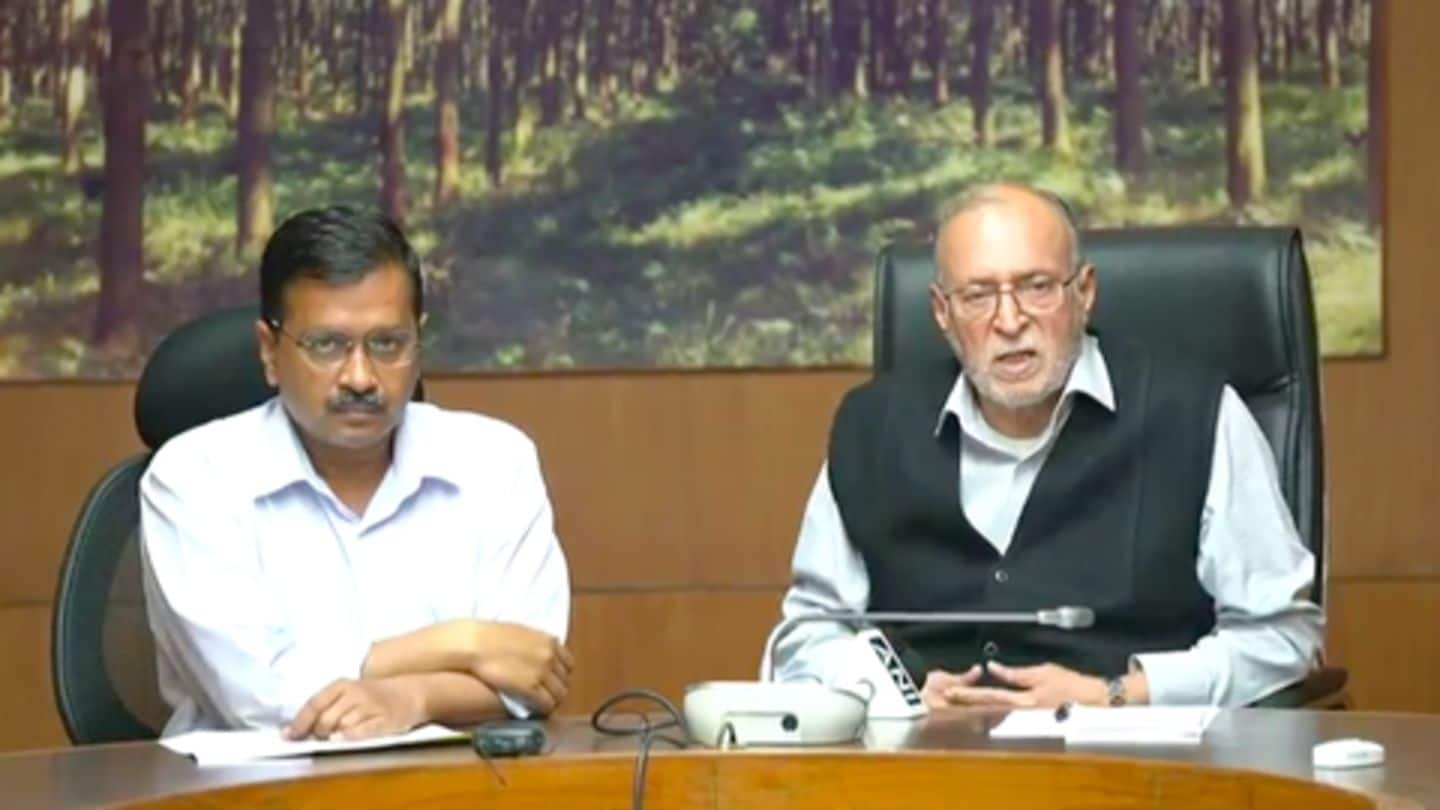
Delhi on full lockdown from tomorrow; public transport, shops shut
What's the story
A day after he refused to put Delhi on lockdown, Delhi Chief Minister Arvind Kejriwal on Sunday placed the national capital on full lockdown in the wake of the coronavirus outbreak.
The CM announced that the lockdown will be effective from 6 am on Monday.
The announcement comes as the national capital of Delhi has reported 27 confirmed cases of novel coronavirus disease (COVID-19).
Details
6 out of 27 cases involve local transmission, says Kejriwal
Kejriwal said out of the 27 cases, 21 cases have foreign travel history and six cases involve local transmission.
He said, "If we do not take tough steps against the outbreak right now and if these cases surge to 1,000-1,500, then a lockdown wouldn't be helpful, as evidenced in Italy."
The lockdown will remain enforced till March 31 midnight, Kejriwal said.
Public transport
All public transport suspended in Delhi, barring 25% DTC buses
Under the lockdown, Kejriwal announced that all public transport will be suspended. This includes private buses, taxis, rickshaws, e-rickshaws, and auto rickshaws.
However, he said 25% of the fleet of the Delhi Transport Corporation (DTC) will continue to ply on roads to allow transport for people providing essential services (e.g. healthcare workers).
Interstate buses, trains, and the Delhi Metro have also been suspended.
Information
Delhi shuts borders; incoming flights banned
Kejriwal announced that all the borders that Delhi shares with its neighboring states will also be closed. Only essential items, such as milk, vegetables, food items, etc., will be allowed across state lines. All incoming flights, domestic or international, have been banned in Delhi.
What's closed
All shops, offices, markets, factories, religious places shut
All shops, bazaars, commercial establishments, factories, workshops, offices, godowns, weekly bazaars in Delhi will remain closed.
All construction activities will be halted.
All religious places of any faith will also remain shut.
"I appeal to everyone to stay inside their homes as much as possible," Kejriwal said. "From what we have seen worldwide, the more we stay indoors, the safer we would be."
Exemptions
Who and what is exempted under the lockdown?
All law enforcement and magisterial offices are exempted from the lockdown.
Kejriwal said, "All police work will continue. All healthcare operations will continue. Fire and prison departments will remain operational."
Further, the CM said, ration shops, electrical and water department offices, pay and accounts offices, will remain open.
Municipal services (e.g. cleaning), telecom services, internet services, postal services, will continue.
Exemptions
Here are some other things exempted under the lockdown
Print/electronic media and milk plants will remain operational. Bank cashiers and tellers will continue to work to allow people to withdraw money.
Work for the Budget session in the Delhi Legislative Assembly will continue.
Food/grocery shops, kirana shops, pharmacies, petrol pumps, LPG and oil agencies, and animal fodder shops will remain open.
Restaurants will remain open, albeit for take-away and home deliveries only.
Other details
Manufacturing, transportation and other process for exempted services will continue
"All e-commerce activities regarding essential goods, such as food, medicine, etc., will continue," Kejriwal said.
He said that for all the exemptions stated, all manufacturing, processing, transportation, distribution, storage, trade, commerce, and logistics processes will continue.
If and when the government is of the view that any other services warrant exemption, the same would be notified.
Enforcement
'Gatherings of five or more persons is prohibited'
Under lockdown, if people found roaming in public are questioned, they don't need to produce any documents to prove what business they have outdoors and a verbal declaration of the same would suffice, Kejriwal said.
"Gatherings of five or more persons is prohibited," he reiterated.
Kejriwal also warned action against black marketing of masks/sanitizers. Authorities have already conducted 327 raids and booked 437 persons.
Offices
Private employees to continue being paid under lockdown: Kejriwal
Kejriwal said that although private offices will be closed, permanent and contractual employees will be marked 'on duty'. Hence, workplaces will have to continue paying salaries, even under the lockdown.
These regulations, Kejriwal clarified, do not apply to offices of the Central government located in Delhi. He said that orders with respect to the same will be notified by the Centre itself.